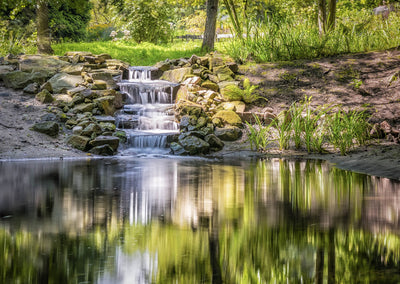Vegetable Plants for Seeding in February
February is the perfect time to start planting vegetable seeds in many regions, if the soil can be worked and the weather is warm enough to germinate the seeds you can plant them straight out. If not get the early veggies started indoors to get an early start. Here is a list of some of the best vegetables to plant in February:

Peas:

Peas are one of the earliest vegetables to grow and are ideal for planting in February. They are easy to grow and can be grown in a variety of soils and climates. Peas prefer a well-drained soil that is rich in organic matter and a slightly acidic pH. They like cool temperatures so can be direct seeded into the garden. Otherwise start in 4 packs under a grow light then plant out at the end of March.
Radishes:

Radishes are a quick-growing root vegetable that can be planted in February. They are easy to grow and do well in cool weather, making them an ideal choice for planting in the spring. Radishes prefer a well-drained soil that is high in organic matter.
Spinach:

Spinach is a cool-weather vegetable that is ideal for planting in February. It grows quickly and is easy to grow, making it a good choice for gardeners of all skill levels. Spinach prefers a well-drained soil that is high in organic matter and a slightly acidic pH.
Lettuce:

Lettuce is another cool-weather vegetable that can be planted in February. It grows quickly and is easy to grow, making it a good choice for gardeners of all skill levels. Lettuce prefers a well-drained soil that is high in organic matter and a slightly acidic pH. Start inside if the weather is freezing and plant out seedings as soon as soil is workable.
Broccoli:

Broccoli is a cool-weather vegetable that can be planted in February. It is a bit more challenging to grow than some of the other vegetables on this list, but it is still a good choice for experienced gardeners. Broccoli prefers a well-drained soil that is high in organic matter and a slightly acidic pH. Start indoors in 4 packs and plant out as soon as soil can be worked.
Onions:

Check out my video on youtube it shows you everything you need to know about growing onions!
https://youtu.be/a1Hdk6G2VHk?si=5ZcjRGgU3JOGg0QsTips for Seed Germination:
Use high-quality seed: Make sure to use high-quality seed that has been stored properly. Old seed may not germinate well, so make sure to use seed that is within its recommended storage time.
Plant at the right depth: Make sure to plant the seeds at the right depth. Most seeds should be planted at a depth of about twice their diameter. Check the seed packet for specific planting instructions.
Keep the soil moist: Keep the soil moist after planting the seeds. This will help to ensure good seed germination. Make sure to water the soil regularly, but avoid overwatering, as this can lead to seed rot.
Provide the right temperature: Make sure to provide the right temperature for seed germination. Most seeds prefer a temperature of about 70°F, but some may require slightly higher or lower temperatures. Check the seed packet for specific temperature requirements and use a heat pad for fast germination.

Tips for Growing Vegetables After Germination:
Provide adequate sunlight: Make sure to provide adequate sunlight for the growing vegetables. Most vegetables need at least 6 hours of sunlight per day, but some will need more. Check the seed packet for specific sunlight requirements.
Keep the soil moist: Make sure to keep the soil moist after the seeds have germinated. This will help to ensure that the plants grow properly. Make sure to water the soil regularly, but avoid overwatering, as this can lead to root rot.
Provide adequate nutrition: Make sure to provide adequate nutrition for the growing vegetables. This can be done through the use of compost or other organic fertilizers, or use water soluble type fertilizers recommended for vegetables.
Practice good pest management by keeping a close eye on the plants. Remember to use insect screens on all veggies and keep them well watered through hot weather to reduce stress. Stressed plants tend to have more insect issues.
Good luck!
Ken Salvail
Horticulturist.





